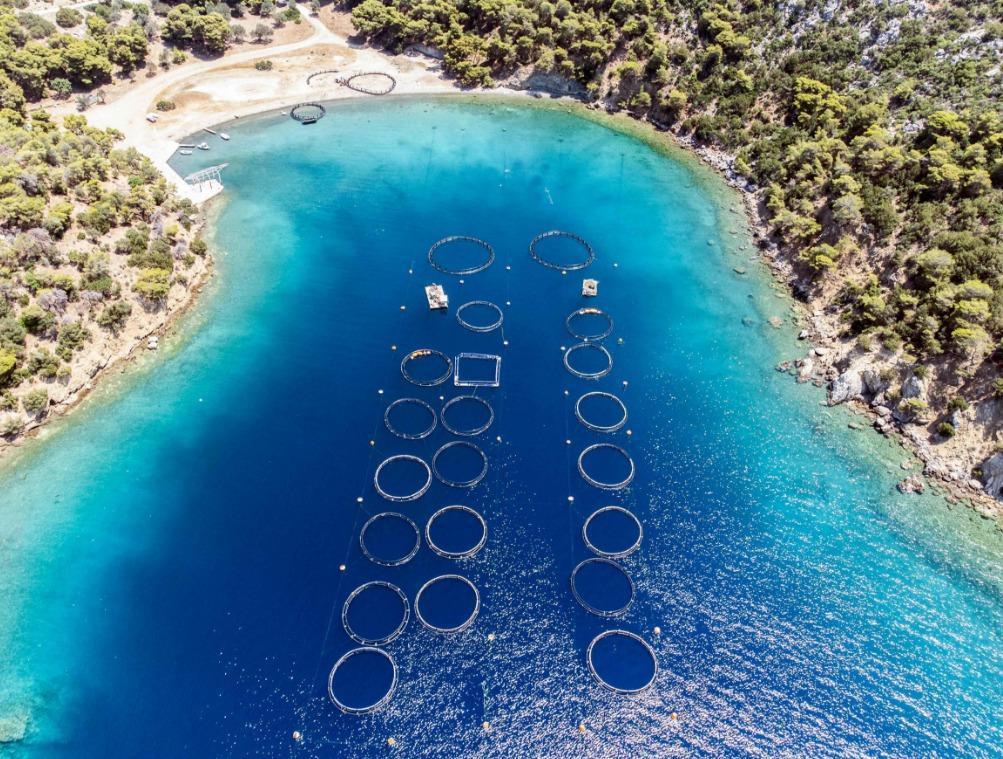Greek islanders dismayed by plan to scale up fish farming
POROS, Greece

On the sunny quay of the picturesque Greek island of Poros, veteran fisherman Spiros Papaioannou makes no bones about imminent plans to expand fish farming.
"We don't want them on our island," the rubber-booted man in his seventies grumbled while cleaning his nets.
"We fishermen are going to be chased away, that's for sure," he said.
Greek-Spanish group Avramar, which presents itself as the world's leading producer of Mediterranean fish, already operates several fish farms in Poros.
The Greek state has long planned to make the Saronic Gulf island of 3,000 inhabitants near the Peloponnese peninsula one of the country's top aquaculture sites for sea bream and sea bass, which mainly end up at French and Italian restaurants.
Eventually, fish farms would cover a quarter of the island, 600 hectares on land and 269 hectares at sea.
A Mediterranean country with more than 15,000 kilometers of coastline, Greece is keen to develop its aquaculture industry and has earmarked 25 sites for fish farm installation.
The European Union has allocated 92 million euros ($101 million) to promote aquaculture in Greece by 2027.
According to the Hellenic Aquaculture Producers Organization (HAPO), the industry in 2021 saw a seven percent increase in volume to 131,000 tons.
In Poros, annual production would increase eightfold to more than 8,800 tons from 1,100 tons currently over the next five years, according to local project managers POAY Poros.
Poros Mayor Yannis Dimitriadis is among those opposed to the initiative, which he says will endanger the island's existing tourism industry.
"Yes to maritime tourism, no to fish farming," read a banner hanging from the Poros cultural center building.
Poros "is 95 percent dependent on tourism, directly or indirectly," Dimitriadis told AFP.
"We are going to become an industrial zone, calling into question the whole balance of our economy," added the mayor, who claims to have already twice met Prime Minister Kyriakos Mitsotakis to explain his opposition to the project.
With its pastel-colored buildings and oleander and bougainvillea-filled squares, Poros presents itself as a far cry from the mega hotel model.
"We don't want to be Santorini or Mykonos," explained Magdalena Iwaszko, owner of a small hotel near the island port.
"Tourists come here to relax... the establishment of fish farms would have enormous environmental consequences. Nobody wants aquaculture here," she said.
Poros' advantage is "crystal clear waters and an untouched coast," the hotelier argues.
The sea off the northern part of Poros is dotted with large floating cages.
"I am not [fundamentally] opposed to fish farms," said fisherman Tasos Ladas, acknowledging that Greek seas are "being emptied of fish year after year" one way or another.
"They are a necessary evil. But it has to be done correctly, with strict protocol and controls, and not in tourist areas," the fisherman noted.
















